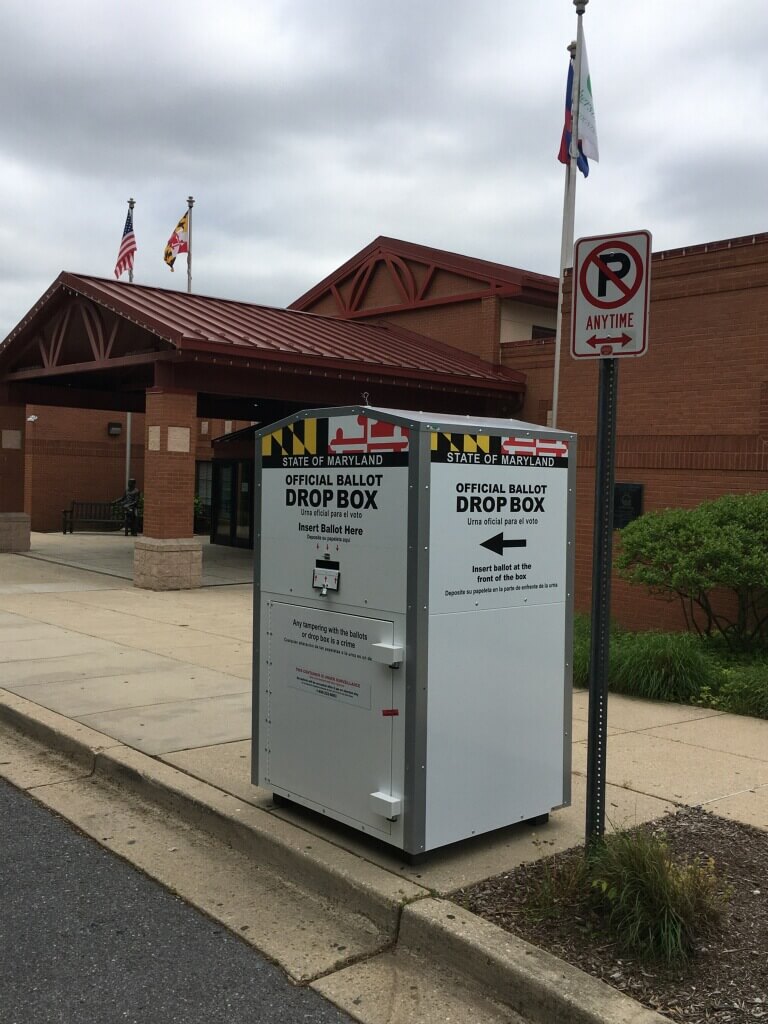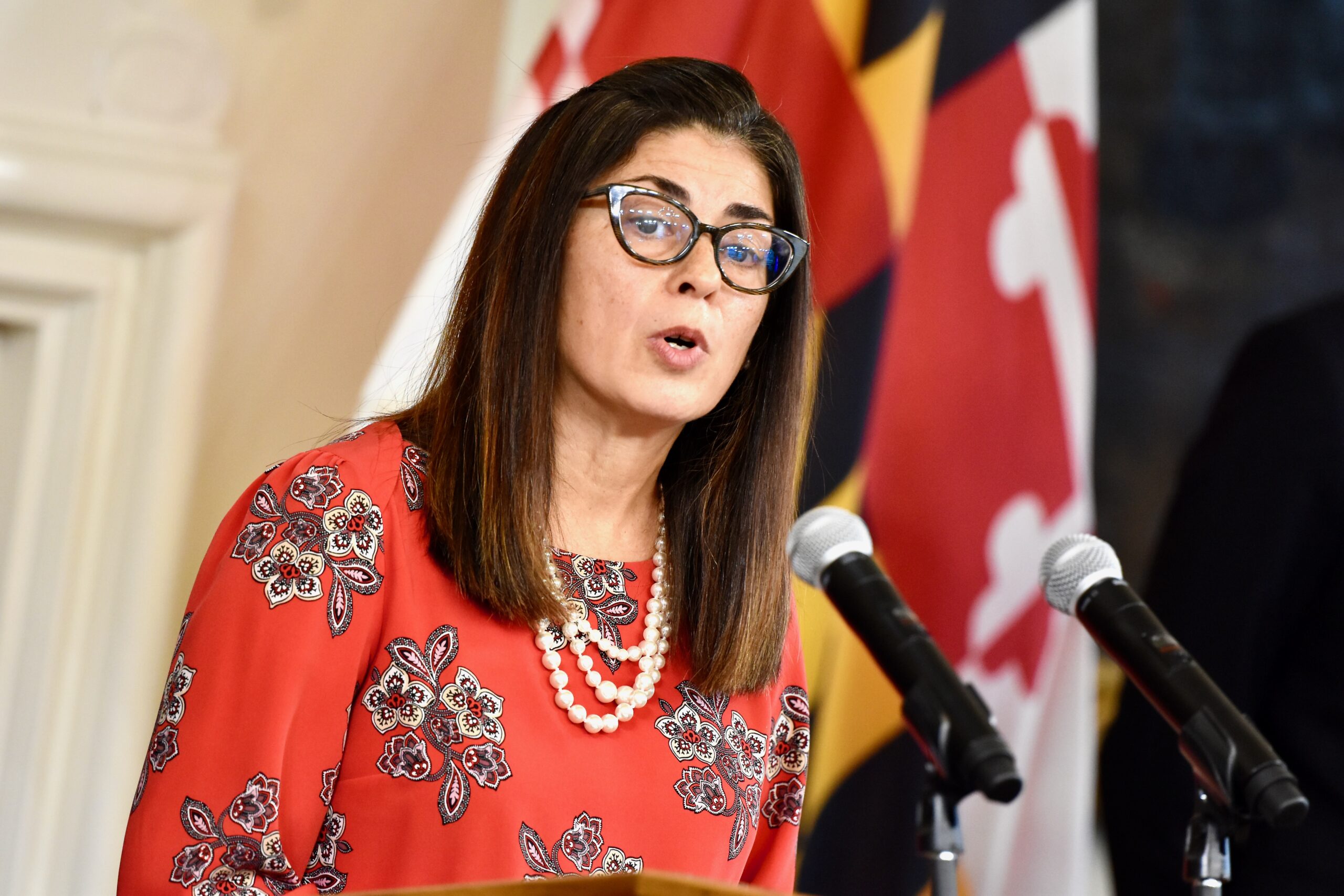Senate Panel Takes Up House Absentee Ballot Access Reform

The Senate Education, Health and Environmental Affairs Committee took up several House election reforms Thursday, including a proposal to permanently expand ballot drop-off boxes across the state.
House Bill 1047, introduced by Del. Jheanelle K. Wilkins (D-Montgomery), includes a slew of reforms aimed at improving access to absentee ballots, including allowing for more robust absentee ballot tracking and expanding the number of popular ballot drop-off boxes.
In pitching her legislation to committee members Thursday, Wilkins emphasized the bill’s requirements for additional drop-off box security measures, such as video surveillance. She also noted that her proposal requires election officials to publish a report, after every statewide election, on voter turnout and how election policies impacted the voting.
The bill has broad support from voting rights advocates, with Common Cause Maryland Executive Director Joanne Antoine telling committee members Thursday that the legislation is “critical” to ensuring voter confidence in absentee voting.
Ben Jackson, an attorney for Disability Rights Maryland, told lawmakers that the bill’s provisions will make voting more accessible for people with disabilities. The bill requires that ballot drop boxes be compliant with the Americans with Disabilities Act.
Sen. Cheryl C. Kagan (D-Montgomery) asked Wilkins about potentially revising the bill to include an “insurance policy” for local boards of elections in paying for postage, citing Gov. Lawrence J. Hogan Jr.’s (R) decision to mail every registered voter a mail-in ballot application during last year’s primary election.
Wilkins noted that election costs have been a “major issue” in the past, and said she’d welcome more specific language about cost-splitting in the bill. State and local election boards traditionally evenly split election costs in Maryland.
The proposal inspired a partisan back-and-forth in the House over the question of ballot security: Republicans raised concerns about ballot harvesting, or the mass collection and turning in of absentee ballots, but were dismissed by Democrats who pointed to security measures already in place to stop fraud.
“Voter fraud exists,” House Majority Leader Eric G. Luedke (D-Montgomery) said before the bill was approved by the House in March. “And we have a system built to stop it.”
Wilkins said at the time that she was “surprised” by Republican pushback to the bill, given its provisions for ballot tracking and to set up additional security measures for ballot drop-boxes.
Senate committee members also took up Del. Jessica M. Feldmark’s (D-Howard) House Bill 1068, which would codify a pandemic-related state election policy about what officials should do about multiple ballots cast by the same voter. Under current law, if a local board of elections receives both a provisional ballot and an absentee ballot, both are rejected.
But amid unprecedented mail-in ballot use last year, the State Board of Elections adopted a temporary policy that required local boards to accept an absentee ballot and reject a provisional ballot if they received both from the same voter. Feldmark’s proposal would make that policy permanent.
“Current regulations require that both ballots be rejected, meaning the voter, who most likely cast that provisional ballot just trying to make sure their vote got counted, ends up losing their voice in the election,” Feldmark said.
Senate Minority Leader Byran W. Simonaire (R-Anne Arundel) was skeptical of Feldmark’s bill. He worried that, if a voter had their absentee ballot stolen and submitted by someone else, the voter would be left without a way to cast a ballot.
“There’s no checks after you send it in,” Simonaire said.
Jared DeMarinis, director of candidacy and campaign finance for the State Board of Elections, noted that theft of an absentee ballot and impersonation of a voter is already illegal and would be investigated if reported by a voter.
Kagan suggested reviving the bill to provide for an early canvassing start date – another measure temporarily adopted by the State Board of Elections due to the influx of mail-in ballots last year. Kagan said moving the canvassing date back would allow election officials to communicate with voters about issues with their mail-in ballots.
The Senate panel is also considering a proposal by Del. William J. Wivell (R-Washington) to remove a voter’s party affiliation from the outside of absentee ballot return envelopes. Wivell told lawmakers Thursday that the proposal “is probably the easiest bill you’ll consider this session.” The proposal passed unanimously out of the House in March.




 Creative Commons Attribution
Creative Commons Attribution